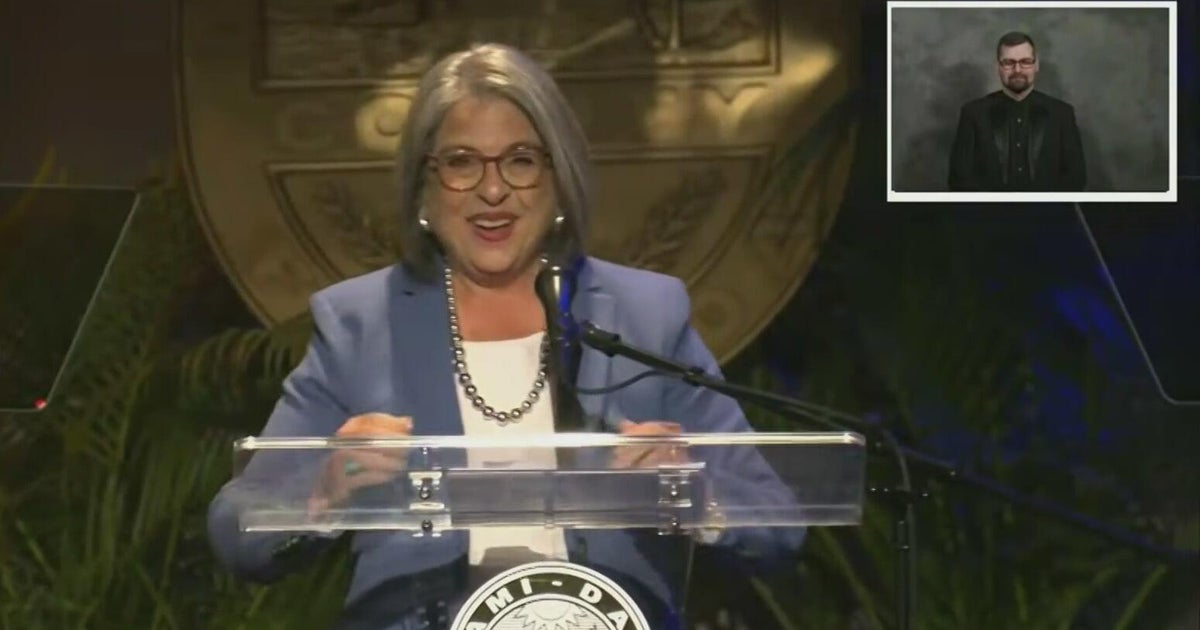TALLAHASSEE – A a few-judge federal panel Wednesday turned down a constitutional challenge to a congressional redistricting approach that Gov. Ron DeSantis pushed by means of the Legislature in 2022, declaring opponents did not show lawmakers acted with “racially discriminatory intent.”
The conclusion was the 2nd time in significantly less than 4 months that courts have upheld the map in instances centered on the overhaul of a North Florida district that in the earlier elected a Black Democrat. The state’s 1st District Courtroom of Attraction on Dec. 1 backed the plan – a final decision that has been appealed to the Florida Supreme Court.
The federal court lawsuit, submitted by plaintiffs this sort of as Popular Bring about Florida and the Florida NAACP, alleged that the map concerned intentional discrimination and violated the U.S. Constitution’s 14th Modification and 15th Modification. The 14th Amendment guarantees equal protection, while the 15th Modification prohibits denying or abridging the ideal to vote based mostly on race.
But Wednesday’s opinion shared by Judges Adalberto Jordan, Casey Rodgers and Allen Winsor reported the plaintiffs experienced not achieved a essential test of demonstrating that the Legislature acted with racial inspiration.
“There are two suitable condition actors in this case – the Florida Legislature, which passed the enacted map, and the governor, who proposed, pushed for, and signed the enacted map into legislation,” the opinion explained. “It is not sufficient for the plaintiffs to present that the governor was inspired in component by racial animus, which we will presume without the need of choosing for purposes of our selection. Instead, they also have to confirm that the Florida Legislature by itself acted with some discriminatory reason when adopting and passing the enacted map. This they have not accomplished.”
The view claimed the “plaintiffs freely concede there is no direct or circumstantial evidence of racially discriminatory goal on the part of any member of the Florida Legislature.”
“A public and collective choice-making entire body, like the Florida Legislature, is answerable only for its have unconstitutional steps and motivations,” the 58-page belief explained. “The unlawful motivations of other people – whether constituents, the governor, or even a one member of the body by itself – do not turn into those people of the decision-building entire body as a total unless of course it is demonstrated that a vast majority of the body’s users shared and purposefully adopted (i.e., ratified) the motivations.”
But Jordan and Winsor, in concurring viewpoints, took opposing stances on whether or not DeSantis experienced racial motivations. Contrary to ordinary federal-court docket instances, a few-judge federal panels hear redistricting cases.
Jordan, a choose on the 11th U.S. Circuit Courtroom of Appeals, wrote that “the proof introduced at trial convinces me that the governor did, in fact, act with race as a motivating aspect.”
“I do not imagine that Governor DeSantis harbors personalized racial animus towards Black voters,” Jordan wrote. “But I do think that he applied race impermissibly as a indicates to obtain ends (together with partisan benefit) that he can not acknowledge to.”
Winsor, a district decide, disagreed with Jordan and wrote that the plaintiffs did not deliver discriminatory objective by the Legislature or DeSantis.
“Florida governors, like United States presidents, routinely use their legislative authority to advance their policy aims, just as legislators do.” Winsor wrote. “Plaintiffs contact the governor’s insistence below ‘bull(ying) the Legislature.’ Other folks may connect with it performing exercises political will. But a person shouldn’t connect with it racist.”
The North Florida district, Congressional District 5, in the previous elected Black Democrat Al Lawson. The previous configuration of the district stretched from Jacksonville to Gadsden County, west of Tallahassee, and incorporated regions with sizable quantities of Black voters.
DeSantis vetoed a redistricting strategy passed by the Republican-controlled Legislature and muscled as a result of a substitution that put District 5 in the Jacksonville region. White Republicans won all North Florida congressional seats in the November 2022 elections.
DeSantis argued that trying to keep a district similar to the former form of Congressional District 5 would be an unconstitutional racial gerrymander.
The a few-choose federal panel held a trial in September and October. In the meantime, a independent case was participating in out in condition courts. That case focuses on a 2010 state constitutional amendment, acknowledged as the Truthful Districts amendment, that prohibited drawing districts that would “diminish” the ability of minorities to “elect representatives of their selection.”
Leon County Circuit Judge J. Lee Marsh agreed with voting rights groups that the redistricting prepare violated the Good Districts modification. But the 1st District Court of Enchantment turned down that selection in December, citing the sprawling form of the district that elected Lawson..
The appeals court’s main feeling reported safety presented underneath the non-diminishment clause and less than the federal Voting Rights Act “is of the voting electric power of ‘a politically cohesive, geographically insular minority group.'” It stated linking voters throughout a substantial extend of North Florida did not meet such a definition of cohesiveness.
The Florida Supreme Court docket has agreed to listen to an charm by voting-rights teams, although it has not scheduled arguments. As a outcome, the 2022 congressional map will continue to be in spot for this year’s elections.




